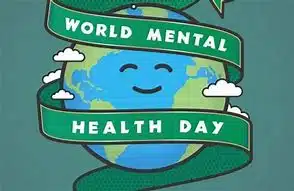Abstract
On October 10, we celebrate World Mental Health Day, and as our understanding of mental health grows, so do we. Mental health has come a long way since the early 1990s, when the World Federation of Mental Health (WFMH) was officially established. Things have improved as a result of our increased self-awareness and sensitivity to them.
Our language around mental health has improved as we learn that words like “crazy” and “lunatic” can be inadvertently hurtful and stigmatizing. While we’ve learned a lot, there is still so much more we as a society can do to evolve.

THE HISTORY OF WORLD MENTAL HEALTH DAY
World Mental Health Day was established in 1992 by the World Federation of Mental Health, led by Richard Hunter, the deputy secretary-general at the time. They had no specific goal other than to promote mental health in general. To say the least, changing a slew of bad and dangerous habits that were exacerbating an already difficult situation was an uphill battle.
A slew of untreated mental health issues plagues the world. In France, there were difficulties obtaining public funding for treatment; in New Zealand, there was inhumane treatment; and there was a general lack of understanding about what mental health is. The WFMH recognized that in order to address a global crisis, they must act on a global scale.
For the first three years, a two-hour telecast was broadcast around the world via satellite by the United States Information Agency. The studio was in Tallahassee, Florida, and it was an excellent way for them to spread their advocacy message to people all over the world. Chile, England, Australia, and Zambia took part, while segments were pre-recorded for broadcast in Geneva, Atlanta, and Mexico City.
The theme of World Mental Health Day in 1994 was “Improving the Quality of Mental Health Services Worldwide.” Following the campaign, 27 countries sent feedback reports, and national campaigns were held in Australia and England. WFMH board members around the world organized events in honor of the day and its growing popularity among government departments, organizations, and civilians alike.
The Pan American Health Organization (PAHO) ensured that the materials in the planning kit were translated into Spanish, French, Russian, Hindi, Japanese, Chinese, and Arabic. This process began in 1995 and is still ongoing. As the perception of mental health became more synonymous with human rights, more countries became involved, as did civilians.
Themes for World Mental Health Day have evolved over time. Women, children, health, work, trauma, suicide, and a variety of other topics have become hot topics, and the average citizen is now more knowledgeable about mental health.

What are the factors that contribute to mental illness?
Psychological trauma, early parental loss, and neglect are just a few examples of internal and external factors that can contribute to mental health issues.
PARTICIPATION IN WORLD MENTAL HEALTH DAY
- participate in workplace group therapy.
Participate in a group therapy workshop at your workplace. This can provide a safe space for you and your coworkers to express yourselves. We have a tendency to believe that pushing through and continuing is the best option, but problems can arise unexpectedly if they are not properly addressed.
- Self-care is critical.
There are numerous lifestyles changes you can make that will last beyond World Mental Health Day. Changing your diet to healthier options, taking lunch breaks, and going on long walks are just a few suggestions. The goal of self-care is to identify your specific needs. Take the time to consider what you want and then pursue it.
- Maintain the theme.
A new theme is introduced each year, and even if it does not directly relate to your problems, you can still learn from it. Spend time researching the subject. Aside from yourself, awareness can give you the tools you need to better understand others.


5 IMPRESSIVE MENTAL HEALTH FACTS
- a malevolent spirit
Certain cultures believe that spirit possession causes mental health problems.
- Global statistics
At some point in their lives, one out of every four people will require mental health care.
- National statistics
Mental illness affects more than 43 million Americans.
- Adolescent depression
Depression among adolescents has increased from 5.9% to 8.2% since 2012.
- Limitations
The vast majority of Americans lack adequate healthcare.
- The Starting Point













